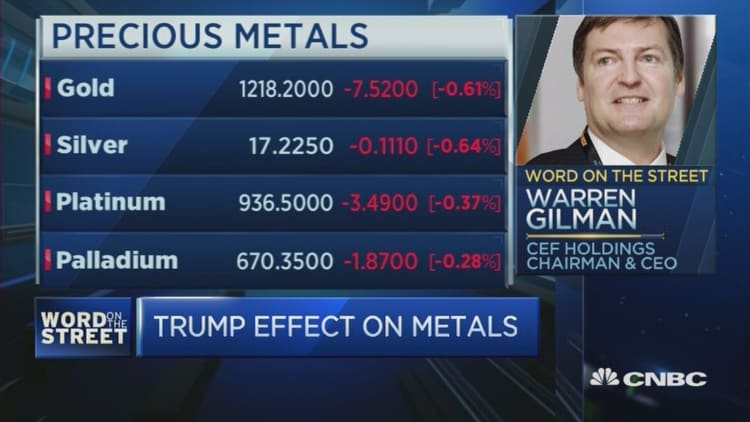Workers at BHP Billiton's Escondida copper mine in Chile, the world's largest, walked off the job on Thursday in a strike that threatens to disrupt the international supply of the widely used metal.
It said no miners arrived for morning work aboard buses that normally carry upwards of 1,200 workers per shift to the vast deposit, which accounted for about 6 percent of global production in 2015.
The union said it was prepared for a lengthy strike and that it had resources for 60 days. Escondida's processing plants, which had begun going offline on Wednesday, have completely stopped, the union said.
"If someone suddenly walked into your kitchen and took away your refrigerator, would you just stand there, arms crossed?" asked miner Jose Alcaino, after returning from the night shift.
"That's what's happening here. They want to take away our benefits, our money, they want to work us more."
BHP declined to comment on Thursday.

At a makeshift camp near the entrance to Escondida, which is partially owned by Rio Tinto and Japan's JECO, protesting workers settled in, equipped with stockpiles of gas cylinders, portable cookers and tents to weather the Chilean high desert's scorching sun and frigid nights.
The camp on a windy, barren plateau between the surrounding mountains - was abuzz by Thursday afternoon with chatter and the sound of hammers hitting nails as some workers began constructing semi-permanent structures out of wood.
Among the issues pitting the 2,500-member Escondida No. 1 Union and the company are the distribution of benefits. Workers complain that BHP wants to cut benefits and has not committed to a benefits scheme that places new and longtime employees on equal footing, something the union considers essential.
Striking workers also blocked roads at the Coloso port near the dusty city of Antofagasta, where hundreds of thousands of tonnes of copper are shipped annually.
"We are united and strong to make sure this is a success," said Claudio Perez, plant worker at Coloso.
BHP has said it would halt production during the strike because it could not guarantee the safety of the 80 workers the government had authorized to perform critical duties, such as equipment upkeep and adhering to environmental protocols.

Fears of the strike had sent copper prices soaring in recent weeks. Prices for the red metal, however, eased on Thursday as some investors cashed in the previous day's gains.
Labor negotiations at Escondida, which are seen as a benchmark for the industry at large, have long history of being contentious.
About a decade ago workers staged a now infamous 26-day strike that forced the global miner to declare force majeure on copper shipments. A labor conflict in 2011 paralyzed the mine for two weeks.
The last wage talks, which occurred four years ago when copper prices were 42 percent higher than now, ended with the company offering each worker a bonus of $49,000, the largest in Chilean mining history.

